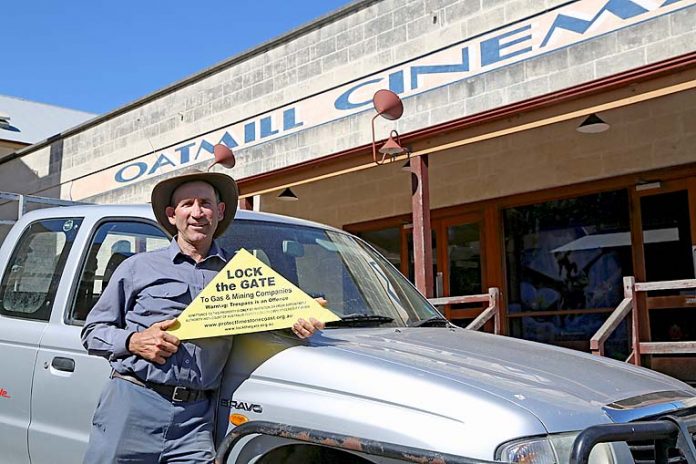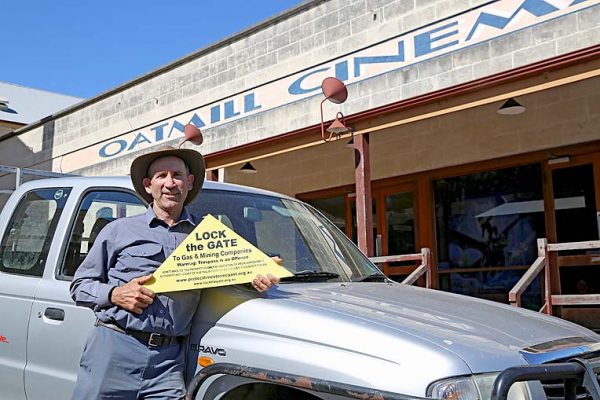

KALANGADOO farmer David Smith’s independent feature film about the coal seam and shale gas industry has scooped top honours at an international film festival, beating out thousands of submissions across the globe.
Mr Smith’s Pipe Dreams Fractured Lives documentary, an hour-long film which explores Australian and American communities living side-by-side with the unconventional gas industry, won the Lift-Off International Documentary Filmmaker Showcase.
Around 2000 entries were received, with Mr Smith’s film one of 200 selected for the next stage.
Judges then selected 94 films to be screened online and open to public voting.
Mr Smith’s film was one of five films which received the most public votes, with a judging panel ultimately crowning his documentary as winner.
“I’m just a farmer, fair dinkum,” he said.
“I’m just so blown away with this and I’m shaking my head.
“I looked at some of the other entries and they have an editor, a sub-editor, a narrator and a producer.
“There were just three of us that worked on this.”
Mr Smith said he entered the competition after various degrees of success in other independent film festivals, including a second and third placing.
The movie debuted at Mount Gambier’s Oatmill Cinema in February last year and subsequent screenings were shown across the region, including Millicent, Beachport and Lucindale.
Sine then, the documentary has been shown in a number of locations across the country, including a special screening in Western Australia’s Parliament House.
“I had a politican from Western Australia talk to me about it, which ended up with me screening the film in WA Parliament House,” he said.
“Wherever I go with the film, it is unanimous that people say it is a really good film.
“I do not come with any letters on my name, there’s no bells and whistles – just a bucket of determination.
“It has been genuinely overwhelming, surprising and pleasing, but if I get my teeth into things, I just go for it.
“You just try to do the best you do.”
The film was described by judges as an “interesting and current topic that whilst about a specific situation, is universal for audiences”.
The judges also commented on the technical aspects on the film, noting the high sound quality, cinematography and “well selected range of interviews”.
Mr Smith said he was empowered to seek answers about the unconventional gas industry after the former Weatherill Government announced a policy which offered a 10pc share in royalties for farmers who had gas or petroleum extraction enterprises on their land.
“As a result of the government’s royalties decision and conscious of the potential damage to the South East, I decided to borrow $100,000 and travel to Queensland and America with a professional cameraman and journalist,” he said.
“We interviewed both families impacted by unconventional gas as well as doctors and professors to hear their concerns.
“When you look at the impact it could have had in the South East, it had to be done.
“I thought I had to bite the bullet because otherwise, we are going to feel the effects of this.”







